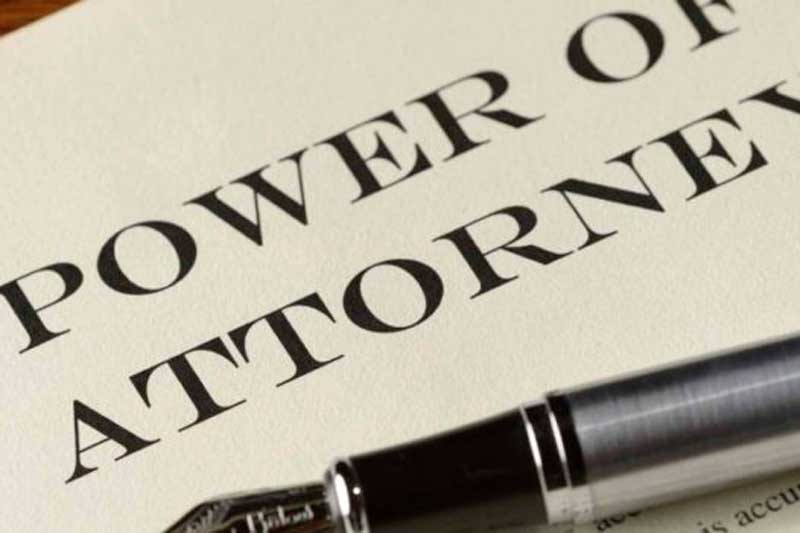The COVID-19 pandemic has led widespread disruption throughout the world. Before the pandemic, it was quite easy and safe for everyone to travel from the UK to Spain to arrange different matters, for example, buying or selling a property, accepting an inheritance, dealing with the bank, applying for a NIE number…
However, due the restrictions of movement implemented because of the coronavirus pandemic; many clients contact us to request we draft a Power of Attorney. This way, we can assist clients in all manner of circumstances, or they can grant a power of attorney to their lawyers, relatives, or friends to represent them or sign a deed on their behalf in Spain.
What is a Power of Attorney and why should you grant it?
A Power of Attorney is a legal document that lets you, the grantor(s), appoint your Spanish lawyer or other person you trust, the attorney(s), to represent you, undertaking tasks and signing documents on your behalf. This will avoid you travelling to Spain and, in the current circumstances, will give you the possibility to make decisions or carry out transactions that, due to movement restrictions, you would not be able to do. So, granting a Power of Attorney is convenient when you do not wish, or you cannot travel to Spain.
In these cases, we recommend contracting the service of a Spanish lawyer to deal with legal matters or transactions in Spain, since Spanish law is quite different from British law. Therefore, legal procedures can be a complex and difficult issue to understand.
How can you grant a Power of Attorney?
If you cannot travel to Spain, you can make a Power of Attorney in United Kingdom. For that, the process is as follows:
Firstly, you will have to find a Spanish lawyer with knowledge to draft a document of this nature in a bilingual version, English and Spanish, so that you know exactly what powers you are signing over to your attorneys. Moreover, this form will save you money as you will not need a ‘Sworn’ translator of the document.
Secondly, you will need to find a Notary Public, who is willing to see you in either his office, his home, or your home. We will contact a local Notary and arrange an appointment for the signature of the document. The Notary will need to identify you and make sure you understand, and you are able to grant the Spanish Power of Attorney.
Once you have signed the document, the witnessing Notary’s signature will be formally needed and recorded. A photocopy of the client´s passport should be also included at the end of the POA which has to be notarised by the Notary Public.
Thirdly, you will need to legalise the Spanish Power of Attorney with a stamp called “apostille of the Hague Convention”, that is a certificate attached to the notarised document to be recognised in Spain immediately. It is important to say that the Power of Attorney will not be valid in Spain without the Apostille from the Hague (Convention of 5 October 1961). We will be able to sort it for you, sending the document to the Foreign and Commonwealth Office in London.
Once the document has been legalised, it can be used for its purpose in Spain. We will send the original POA to the person you want to act on your behalf.
What are the most common types of Power of Attorney?
General Power of Attorney: the principal grants broad powers to a legal representative or other person he or she trusts, to act on his or her behalf in different legal or material acts.
Special power of attorney: in this case the attorney-in-fact obtains powers for a specific legal act related to a more specific action. For example: making a gift, buying, or selling a property, or accepting an inheritance.
Power of attorney for litigation, also known as “poder para pleitos”: this is granted to lawyers, barristers and “procuradores”, so, that they may attend a trial or judicial proceeding on behalf of the party concerned.
Corporate Power of Attorney: a company or legal person may also assign powers to one or more attorneys or trusted persons to carry out one or more transactions on its behalf.
What are the attorney’s obligations?
For your peace of mind, it is mandatory for the lawyer to strictly follow the client/grantor instructions and it is forbidden to act beyond the powers given in the Power of Attorney.
What are the grantor’s obligations?
The grantor is responsible for the acts of the attorney done, so the grantor must fulfil any obligations to which the attorney has committed on the grantor’s behalf.
The grantor has the obligation to advance to the attorney any amounts which are necessary for the performance of the mandate.
What is new after Brexit?
After Brexit, under Spanish law, non-EU citizens must provide a copy of all pages of their passports at the end of the document. Depending on the transaction for which you need it, the passport must be certified in English and Spanish and each page must be notarised. Sometimes, the authorities are also requesting that the notarisation must also be in both languages or in English with a sworn translation into Spanish.
If you want to grant a power of attorney with effects in Spain, please, do not hesitate to contact us, either my colleague Ana Escauriaza or myself, Elena Escribá, and we will be glad to assist you.
Written by Elena Escribá

